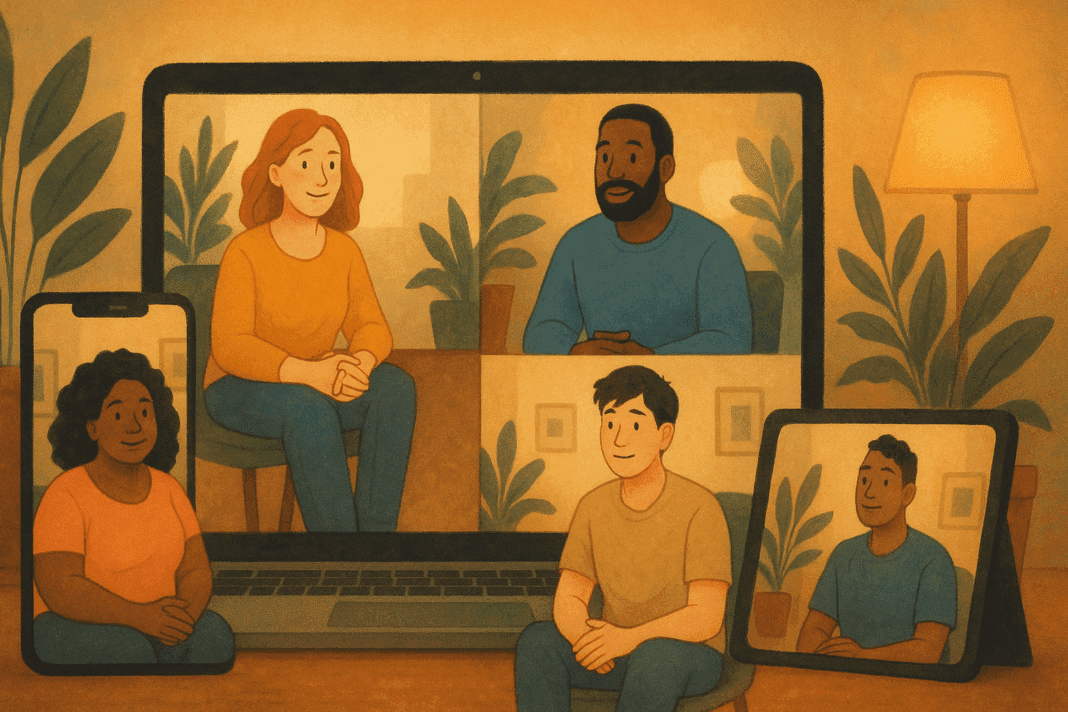In an age where technology shapes almost every facet of daily life, the search for mental and physical wellness has increasingly turned toward digital platforms. For individuals struggling with disordered eating behaviors such as overeating and binge eating, the isolation that often accompanies these challenges can be overwhelming. Many find themselves trapped in a cycle of shame, secrecy, and repeated relapses that damage not only their physical health but also their self-worth. Fortunately, a new form of communal healing is emerging: online support groups. These virtual communities provide a powerful, accessible resource for those seeking connection, understanding, and sustainable recovery. As we explore the dynamics of these groups and their impact, it becomes evident that online support groups for overeating and binge eating represent more than just a digital trend—they offer a transformative path toward a healthier, more empowered lifestyle.
You may also like: How to Stop Emotional Eating and Regain Control: Mindful Nutrition Strategies That Support a Healthier Lifestyle
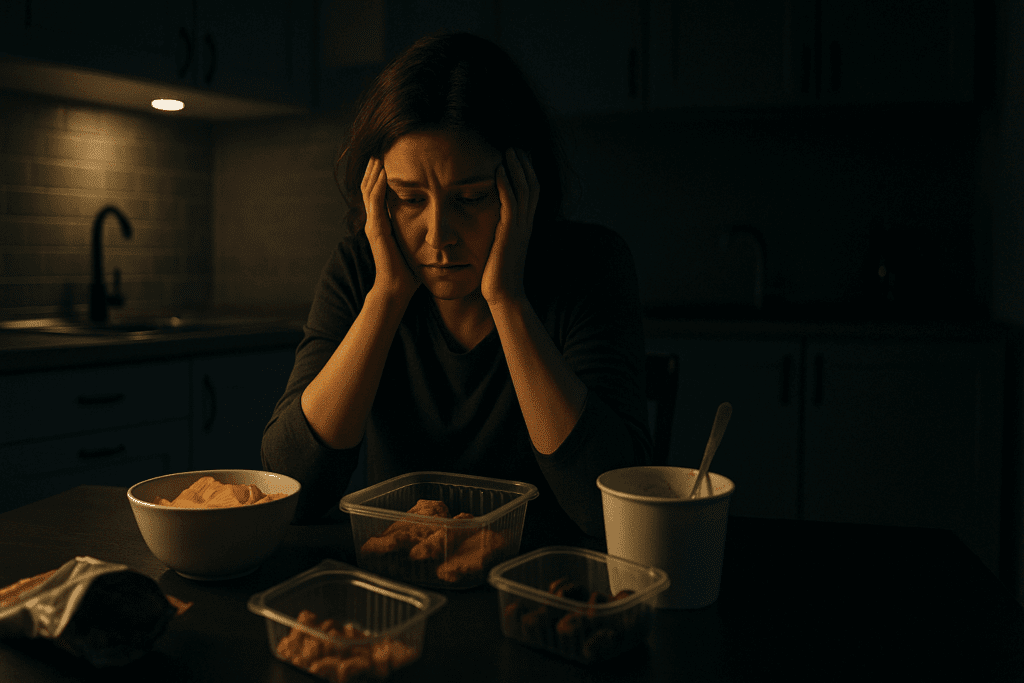
Understanding the Roots of Overeating and Binge Eating
To appreciate the significance of support communities, it’s crucial to understand the behaviors they aim to address. Overeating and binge eating are distinct but often overlapping patterns that affect millions of people across diverse age groups and demographics. While occasional overindulgence is common and not inherently harmful, chronic overeating can become a maladaptive coping mechanism, particularly in response to stress, anxiety, or unresolved trauma. Binge eating, a more severe form of this pattern, is characterized by episodes of consuming large amounts of food in a short period, often accompanied by a sense of loss of control and intense emotional distress.
Medical experts recognize binge eating disorder (BED) as a legitimate mental health condition, one that is frequently underdiagnosed and misunderstood. Unlike other eating disorders such as anorexia nervosa or bulimia, BED does not always manifest in drastic physical changes, which can make it harder to detect. Nevertheless, the psychological burden is significant, and the physical consequences—including obesity, diabetes, and cardiovascular issues—are just as serious. Tackling these behaviors requires more than willpower; it involves addressing deeply embedded emotional, psychological, and sometimes physiological triggers. This is where the value of community-based support comes into play.
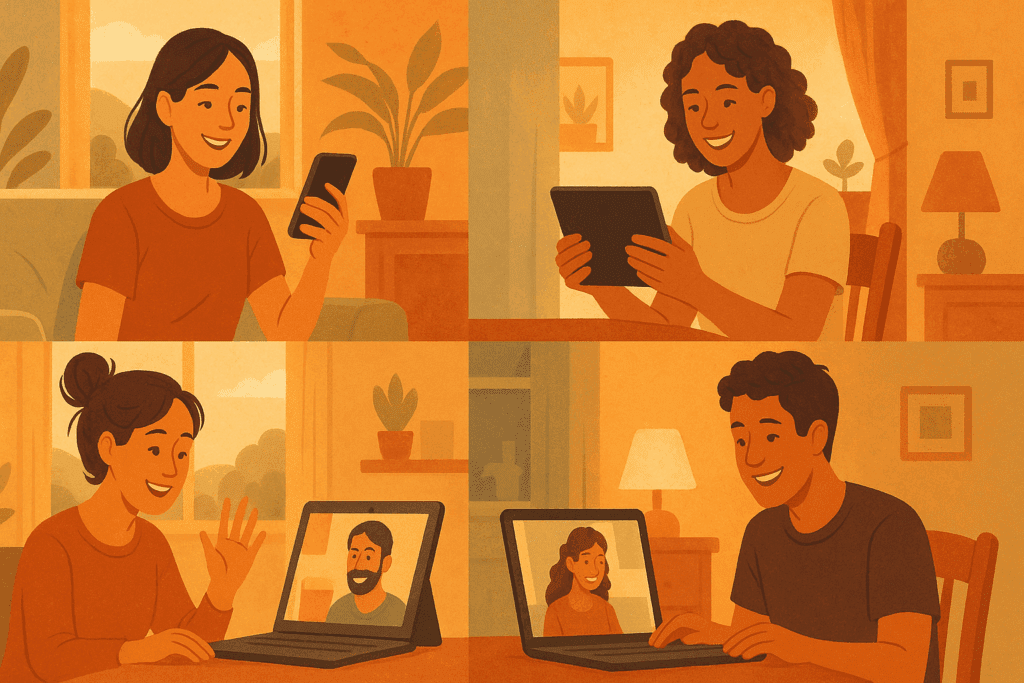
The Rise of Online Support Communities for Eating Disorders
Historically, individuals dealing with eating disorders relied on in-person therapy sessions, group meetings, or treatment centers. While these resources remain invaluable, they are not always accessible to everyone due to cost, geographic location, or personal constraints. The emergence of online support groups for overeating and related behaviors has dramatically expanded access to help. These virtual platforms range from structured, therapist-led forums to peer-moderated groups hosted on social media, apps, or dedicated websites.
The flexibility and anonymity of online spaces are key advantages. Participants can engage at their own pace, whether they wish to share their experiences, ask questions, or simply read others’ stories. This low-pressure environment fosters a sense of safety, which is especially important for individuals who feel ashamed or stigmatized. Moreover, the ability to connect with people who share similar struggles helps normalize the experience, reducing the sense of isolation and offering the reassurance that one is not alone. Through shared experiences, individuals gain not only emotional validation but also practical coping strategies.
Benefits of Online Support Groups for Overeating
One of the primary benefits of joining an online support group for overeating is the immediate sense of belonging. Unlike traditional healthcare settings, these groups often emphasize peer-to-peer connection rather than hierarchical patient-provider relationships. This egalitarian structure can be deeply empowering, particularly for individuals who have felt judged or misunderstood by professionals or family members.
Participants often report a significant reduction in feelings of shame after engaging with others who understand their struggles. The emotional support provided by peers helps break down internalized stigma and fosters a greater willingness to seek additional help when needed. Many users also gain access to a wealth of collective knowledge. Members frequently share resources such as books, podcasts, mindfulness exercises, and meal-planning tools, creating a rich environment for learning and growth.
Moreover, online support groups can serve as a stepping stone toward more intensive interventions. For some, these groups are the first safe space where they can acknowledge their behaviors and begin contemplating change. For others already in therapy or recovery programs, these groups offer continuous, real-time reinforcement of healthy habits. The convenience of digital access means that support is available even during late-night cravings or moments of emotional distress, reducing the likelihood of relapse.
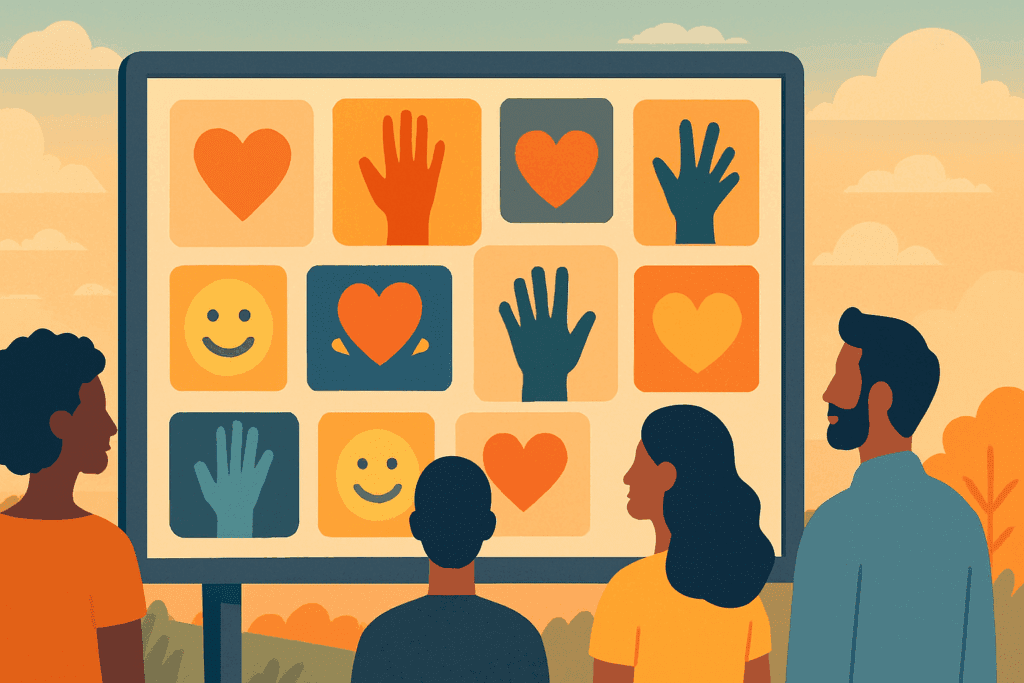
How Binge Eating Support Groups Foster Accountability and Structure
Consistency and accountability are critical components of recovery from binge eating. In many online support groups, members establish daily or weekly check-ins, set personal goals, and track progress together. These collective routines help create a sense of structure, which can be especially valuable for individuals who struggle with disorganized eating patterns or lack a supportive environment at home.
By participating in a binge eating support group, individuals often feel more committed to their recovery because they know others are cheering them on. This sense of mutual accountability is powerful; it transforms the healing process from a solitary struggle into a shared journey. When someone shares a success story—whether it’s resisting a binge or completing a challenging therapy session—it encourages others to persevere. Likewise, when setbacks occur, the group can offer compassionate feedback rather than criticism, helping members reframe their failures as opportunities for learning.
Additionally, many groups incorporate evidence-based practices such as cognitive-behavioral techniques or intuitive eating principles. Some groups even invite guest experts or licensed professionals to lead discussions or Q&A sessions. These features enrich the group experience, providing scientifically grounded strategies alongside peer support. The combination of emotional encouragement and structured techniques creates a holistic environment that supports both short-term behavior change and long-term transformation.
The Role of Technology in Enhancing Connection and Engagement
Modern technology has revolutionized the way support groups function. Advanced platforms now offer features such as video conferencing, live chat, journaling tools, and progress trackers. These capabilities enhance the sense of connection between members, making virtual interactions feel more personal and immediate. For example, video-based support sessions can mimic the intimacy of in-person meetings, while also accommodating people with mobility issues or social anxiety.
Mobile apps dedicated to mental health support have also grown in popularity. Some are specifically designed for those managing eating disorders and include integrated forums, mood trackers, and access to licensed therapists. These tools can complement online support group participation by offering personalized insights and reinforcing positive behaviors through real-time feedback. For many users, the ability to log meals, emotions, and triggers on the go makes them more mindful of their choices and helps build self-awareness.
Furthermore, the asynchronous nature of many digital platforms means that support is available around the clock. Whether someone lives in a different time zone or simply needs to vent in the middle of the night, there is usually someone online to respond. This continuous availability can be life-changing for individuals who feel isolated or unsupported in their physical environment.

Building Emotional Resilience Through Shared Experience
Recovery from disordered eating requires more than just breaking old habits; it involves building emotional resilience and developing new coping strategies. Online support groups for overeating provide a unique opportunity for this kind of growth. By participating in these communities, individuals learn how to identify emotional triggers, articulate their feelings, and practice self-compassion.
The process of sharing one’s story and receiving feedback can be therapeutic in itself. It encourages introspection, vulnerability, and courage. At the same time, hearing others’ experiences helps broaden one’s perspective and fosters empathy. Many participants find that their sense of purpose expands beyond their own healing as they begin supporting others on their journeys. This reciprocity deepens the bonds within the group and enhances individual motivation to stay on the path of recovery.
Over time, these interactions help members internalize a more balanced and accepting view of themselves. They begin to replace self-criticism with self-encouragement, and reactive coping with proactive strategies. These shifts are critical for sustained recovery and contribute to a healthier relationship with food, body image, and emotional well-being.
Integrating Online Support with Professional Treatment Plans
While online communities offer profound benefits, they are not a substitute for clinical treatment when needed. Eating disorders often co-occur with other mental health conditions such as depression, anxiety, or trauma-related disorders, which may require medical or therapeutic intervention. However, online support groups can serve as an essential complement to professional care.
Many therapists encourage their clients to participate in such groups as a form of supplementary support. The combination of individualized therapy and peer connection can significantly enhance treatment outcomes. For example, concepts discussed in therapy sessions can be reinforced through group dialogue, while emotional insights gained from peers can be explored more deeply in one-on-one settings. This integrated approach helps bridge the gap between formal treatment and everyday life, making recovery more sustainable.
It is also important for group members to learn how to discern reliable information and understand the limits of peer advice. Moderated groups with clear guidelines and input from health professionals are particularly effective at maintaining a balance between emotional support and evidence-based guidance. These groups can help individuals develop the skills to critically assess their behaviors, recognize when additional help is needed, and advocate for themselves in healthcare settings.
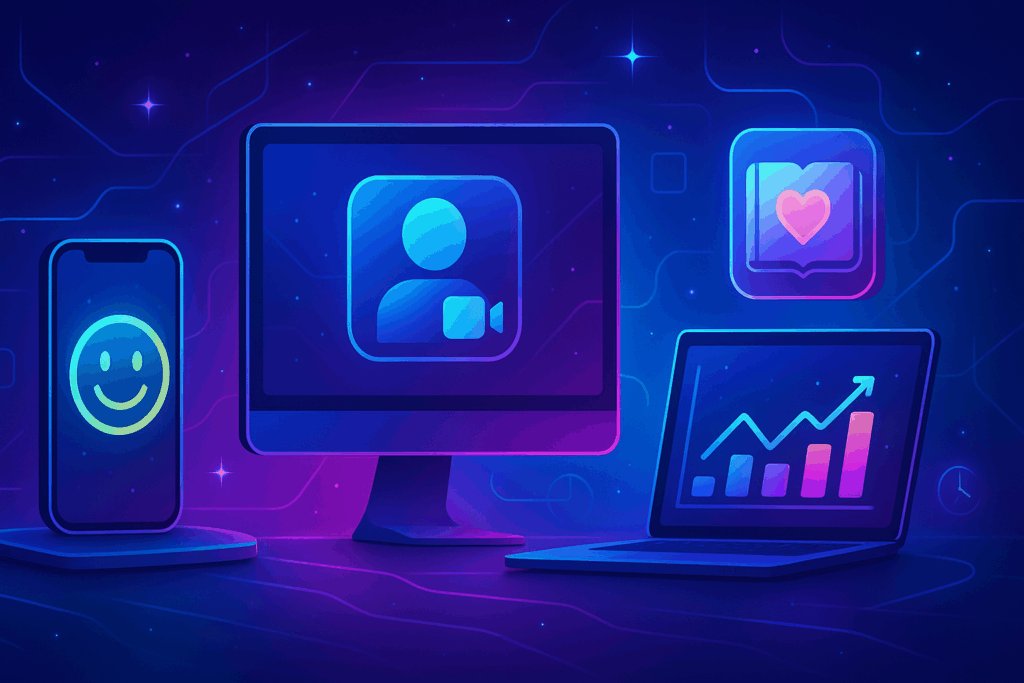
Why Online Support Is Particularly Valuable for Marginalized Groups
Certain populations face additional barriers when seeking help for eating disorders, including cultural stigma, lack of representation, and financial constraints. Online support groups for overeating offer an inclusive space that can be particularly beneficial for these individuals. Virtual communities tend to be more diverse than traditional therapy groups, bringing together people from varied racial, gender, socioeconomic, and geographic backgrounds.
This diversity fosters a richer dialogue and a broader understanding of how eating behaviors are shaped by cultural, societal, and familial factors. For example, someone from a marginalized background might struggle with body image ideals that differ from those depicted in mainstream media. Being able to share these experiences and hear others’ stories helps validate their perspective and challenges the dominant narratives that contribute to disordered eating.
Moreover, the cost-effectiveness of online groups cannot be overstated. Many platforms are free or low-cost, making them accessible to people who might not otherwise be able to afford therapy. Even when formal treatment is available, online groups provide an added layer of cultural and emotional support that enhances healing.
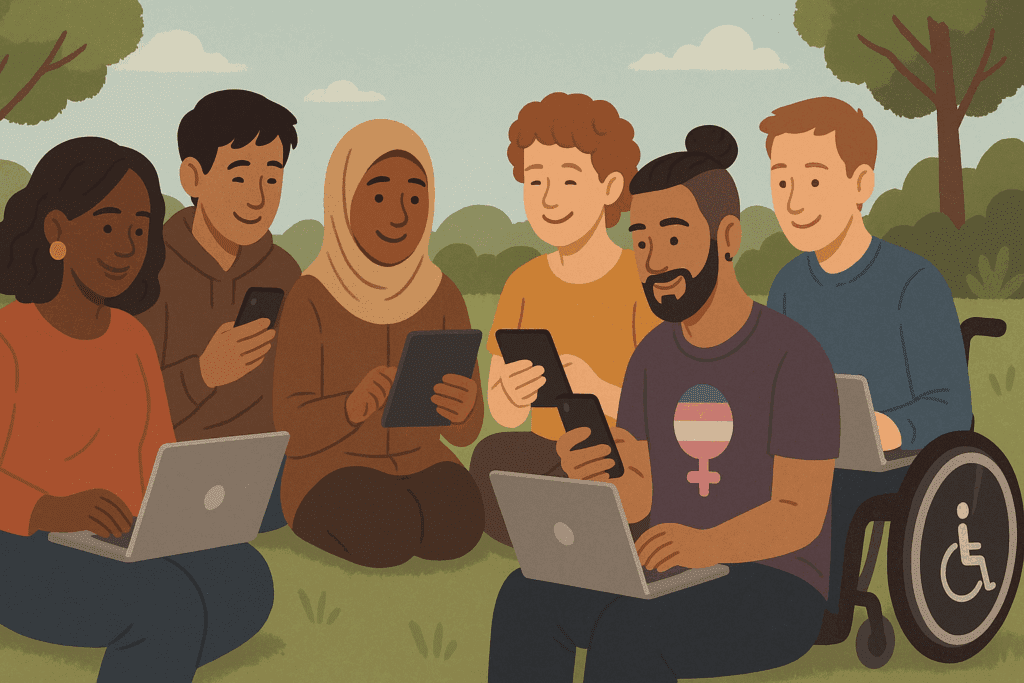
Sustaining Long-Term Wellness Through Community
One of the most powerful aspects of online support groups is their ability to support long-term change. Recovery from binge eating is not a linear process; it involves setbacks, plateaus, and periods of intense self-doubt. Having a consistent, compassionate community to return to can make the difference between giving up and pushing forward. Over time, the group becomes not just a resource, but a lifeline.
Many participants remain active in their communities even after reaching a stable phase of recovery. They take on mentorship roles, contribute educational content, or simply offer words of encouragement to newer members. This ongoing engagement creates a culture of resilience and continuity that benefits everyone involved. The ripple effects of this support extend beyond individual recovery to influence broader conversations about mental health and nutrition.
As public awareness of eating disorders grows, so too does the potential of digital platforms to drive social change. By sharing their journeys, members of online support groups help destigmatize overeating and binge eating and advocate for more inclusive, compassionate approaches to wellness. In doing so, they not only reclaim their health but also contribute to a larger movement that prioritizes empathy, education, and community-driven healing.
Frequently Asked Questions: Online Support Groups for Overeating and Binge Eating
What makes online support groups for overeating different from traditional in-person groups?
While in-person groups provide valuable face-to-face connection, online support groups for overeating offer accessibility, anonymity, and flexibility that traditional models may lack. Individuals can engage from anywhere, removing geographic or mobility barriers that might prevent participation in a physical setting. Furthermore, the asynchronous nature of many digital platforms allows users to contribute or seek support at any hour, which is especially useful during high-risk moments like late-night cravings. Many participants also feel more comfortable opening up in online forums, where they can maintain a level of privacy and avoid the social anxiety that sometimes accompanies in-person interactions. These unique dynamics allow for ongoing engagement that adapts to the user’s lifestyle and emotional needs.
How can an online binge eating support group complement therapy or professional treatment?
An online binge eating support group can significantly enhance the effectiveness of professional treatment by providing daily reinforcement of recovery principles in a non-clinical environment. While therapists offer specialized guidance, online communities help bridge the gap between sessions, giving individuals the space to practice what they learn in real time. These groups often foster peer accountability, which can encourage members to follow through on action steps and maintain healthier habits between appointments. They also offer an opportunity to test new coping strategies in a supportive environment, allowing users to reflect on emotional triggers with real-world context. Integrating both avenues provides a more holistic approach to healing by blending structure with social connection.
Are there specific features to look for when choosing an effective online support group for overeating?
Yes, the most effective online support groups for overeating typically include moderated discussions, clear participation guidelines, and a focus on evidence-based strategies. Look for platforms that offer experienced or professionally trained moderators to ensure the conversation remains supportive, respectful, and psychologically safe. Peer-led forums without structure can sometimes veer into unhelpful or triggering territory, so choosing a community with a solid framework is essential. It’s also beneficial when the group incorporates goal tracking, reflection prompts, or live check-ins—features that reinforce accountability and keep members engaged. Lastly, a welcoming, inclusive tone that respects diverse backgrounds and experiences is a strong indicator of a group where lasting progress can flourish.
What are some lesser-known benefits of joining a binge eating support group online?
Beyond emotional support and accountability, online binge eating support groups can offer surprising auxiliary benefits. For instance, members often share creative self-care practices, like journaling prompts, sleep hygiene techniques, or budget-friendly meal prep ideas that might not surface in formal treatment settings. These grassroots insights contribute to a sense of practical empowerment. Another benefit is identity reconstruction: engaging with a compassionate group helps members reframe themselves not as someone who lacks control but as someone resilient and worthy of healing. Additionally, many groups introduce members to advocacy or volunteer opportunities, which can add purpose and meaning to recovery. These secondary gains contribute to long-term stability and emotional enrichment.
Can online support groups for overeating help reduce relapse rates?
Yes, studies suggest that ongoing participation in peer-driven recovery environments can lower the likelihood of relapse by offering sustained emotional regulation and problem-solving skills. Online support groups for overeating function as a safety net, allowing individuals to voice struggles before they escalate into a full relapse. This immediacy—paired with consistent reinforcement of coping tools—helps prevent setbacks from spiraling into prolonged regression. Furthermore, seeing others openly navigate their own ups and downs fosters a mindset of resilience rather than perfectionism. Members are also more likely to course-correct quickly when they feel held by a community that encourages recovery without judgment.
How do binge eating support groups foster a sense of identity and belonging?
One of the most powerful aspects of a binge eating support group is the way it reshapes participants’ sense of self. Individuals who have struggled in silence often carry a great deal of shame, which isolates them from others. Through consistent participation, members begin to see themselves reflected in others’ stories, and this shared understanding builds solidarity and emotional safety. As trust grows, the group becomes a space where members can reimagine their identity—not just as someone recovering from an eating disorder, but as a person worthy of joy, connection, and nourishment. Belonging in this context becomes a healing force, gradually displacing self-doubt with community-affirmed worth.
Are there risks or downsides to participating in online support groups for overeating?
While many online support groups for overeating offer meaningful benefits, there are potential pitfalls to be aware of. Not all platforms are equally moderated, and some may inadvertently allow harmful behaviors to be normalized or even encouraged. For example, discussions that veer into extreme dieting advice or weight-focused competition can be counterproductive and emotionally triggering. It’s also possible for members to become overly reliant on group validation, which can hinder the development of internal coping mechanisms. To mitigate these risks, it’s important to choose a group with experienced moderators and a clearly articulated philosophy grounded in compassion, body neutrality, and psychological safety. Being selective about where and how you engage helps ensure that the support you receive is healthy and constructive.
What role do cultural and personal identities play in online binge eating support groups?
Online binge eating support groups can be particularly valuable for individuals whose experiences with food and body image are shaped by cultural or identity-based factors. These communities often attract members from diverse racial, gender, and socioeconomic backgrounds, creating space for nuanced discussions around how culture, tradition, and social pressure influence eating behavior. For example, someone from a background where food is central to family life may struggle with boundaries differently than someone raised in a more individualistic culture. Recognizing these unique challenges helps members feel seen and understood in ways that generalized treatment approaches may not provide. Identity-affirming spaces allow for more tailored conversations, increasing the emotional relevance and impact of the support received.
How do online support groups promote long-term lifestyle changes beyond eating behaviors?
Though the initial focus may be on food, effective online support groups for overeating often catalyze changes that extend into other areas of life. As participants build self-trust and resilience, they tend to apply these skills in broader domains—such as setting boundaries, cultivating healthier relationships, or pursuing fulfilling activities that were previously overshadowed by disordered eating. Group dialogue often touches on topics like emotional intelligence, time management, and self-advocacy, promoting a more holistic model of wellness. Over time, the group acts as a mirror that reflects members’ growth, encouraging them to take empowered steps outside the virtual space. These cumulative shifts help solidify new identities rooted in agency and self-respect.
What innovations or future trends are emerging in the world of binge eating support group platforms?
As digital health continues to evolve, we’re seeing a wave of innovation in how binge eating support groups are structured and delivered. Artificial intelligence is being integrated into some platforms to provide real-time emotional analysis and customized support recommendations, enhancing the personalization of care. Virtual reality (VR) therapy rooms are also being explored, allowing members to engage in immersive environments that simulate real-life triggers and coping scenarios in a safe, guided manner. Additionally, there’s a growing movement toward hybrid models that combine professional therapy, peer support, and wellness coaching into a single interface. These advancements aim to deepen engagement and ensure that online support remains not just accessible, but therapeutically robust. As the digital landscape matures, we can expect online support groups for overeating to become even more dynamic and integrative in their offerings.
Embracing Online Support Groups for Overeating as a Path to Lasting Change
In a world where disordered eating often thrives in secrecy and silence, the emergence of online support groups represents a powerful antidote. These communities provide more than just a place to vent—they offer structured accountability, emotional validation, and practical tools for recovery. Whether someone is just beginning to recognize harmful patterns or actively seeking to maintain long-term wellness, a binge eating support group can be a transformative resource.
By integrating technology with peer support and, when appropriate, professional treatment, individuals can access a comprehensive and compassionate approach to healing. Online support groups for overeating empower people to build resilience, develop healthier relationships with food, and reclaim control over their lives. Through shared experience and mutual encouragement, participants are not only healing themselves—they’re creating a healthier, more connected world for others, too. As we continue to navigate the challenges of modern life, it is this sense of community that offers both strength and hope for lasting change.
Was this article helpful? Don’t let it stop with you. Share it right now with someone who needs to see it—whether it’s a friend, a colleague, or your whole network. And if staying ahead on this topic matters to you, subscribe to this publication for the most up-to-date information. You’ll get the latest insights delivered straight to you—no searching, no missing out.

